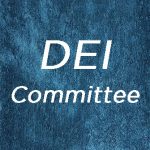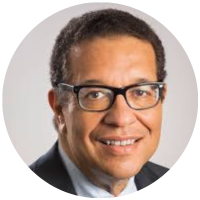The University of Maine School of Law strives to be a diverse community inclusive of all races, ethnicities, national origins, gender identities, sexual orientations, ages, disabilities, classes, and religions. Maine Law is committed to equity in legal education and the legal profession.
Learn more about Maine Law’s commitment to Diversity, Equity, and Inclusion.
Below are a few ways the Law School is taking action to ensure a more inclusive and diverse community.
Diversity, Equity, and Inclusion, (DEI) Committee

In August 2022, Maine Law established the Diversity, Equity, and Inclusion Committee, which evolved out of the Diversity, Equity, and Inclusion (DEI) Task Force established in October 2020. This committee in turn grew from the Law School’s long-standing Diversity Committee. Members include Maine Law alumni, faculty, staff, and current students, including a representative from the student Multicultural Law Society.
https://mainelaw.maine.edu/about/diversity-equity-inclusion/dei-committee/Learn more about the Diversity, Equity, and Inclusion Committee.
Clinic
Established in 1970, the Clinic was one of the first law school clinical programs in the country. Student attorneys in the Clinic work on the frontlines on efforts to combat racial injustice in the law and our institutions. All legal services are provided by law students who are enrolled in one of four clinical courses: General Practice, Prisoner Assistance, Youth Justice, and Refugee and Human Rights. Students also have the opportunity to collaborate with local nonprofit organizations and community groups on a range of advocacy projects.
Refugee and Human Rights Clinic
Law students in the RHRC serve as the attorneys assisting low-income immigrants through a broad range of cases and projects.The course targets a critical gap in access to justice – providing direct legal representation and broader advocacy to immigrants and refugees seeking political asylum and similar protections under federal law, while training future attorneys on how to best serve the legal needs of immigrants.
Faculty Engagement
Maine Law faculty are engaged in a wide range of activities designed to promote diversity, equity, and inclusion in the law. Learn about the work of the Maine Law faculty.
News & Stories
On April 25, 2023 Maine Law hosted an interactive workshop with Maine Inside Out, a Lewiston-based organization that channels theater to center the voices and experiences of incarcerated and formerly incarcerated young people. The event was open to the whole Maine Law community and very well attended. Students, faculty, and staff gathered to play theater games–facilitated by Maine Inside Out members–that were designed to build community trust and deepen dialogue about systemic inequities. Those who attended also viewed a short documentary film about Maine Inside Out’s work at Mountain View Correctional Facility in Charleston, Maine, followed by a robust, reflective group discussion.
Find more DEI news here:
- Celebrating Martin Luther King Jr. Day at Maine Law
- Maine Law Announces new certificate in Public Interest and Social Justice Law
- National Voter Registration Day: Right to Vote Discussion
- Dorothy Robert’s Lecture, “Family Surveillance”
- Former Maine Law Dean Danielle Conway reflects on the joys and challenges of being “first”
- Black History Month: Maine Law hosts Minnesota Attorney General Keith Ellison





